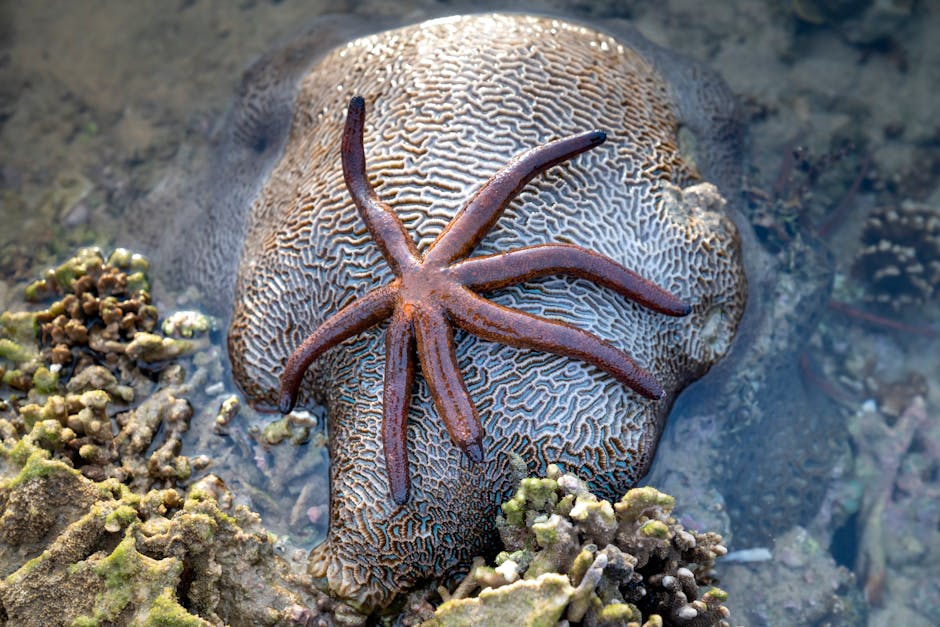The intricate web of life within the marine environment, a realm of astonishing diversity, faces escalating threats. From the profound depths to the sun-drenched surface, countless species are at risk, their habitats degraded, and their populations dwindled. Addressing this critical issue necessitates a multifaceted approach encompassing a range of strategies, informed by marine biology and oceanography. This article explores key facets of safeguarding marine biodiversity.
Understanding the Scope of the Problem
Marine biodiversity, encompassing the variety of life forms in oceans, seas, and coastal areas, is essential to the health of the planet. This includes the vast array of species, from microscopic phytoplankton to massive whales, along with the intricate interactions between them. Numerous pressures impinge upon this delicate balance. Overfishing, a significant contributor, often leads to depletion of fish stocks and disruption of marine food webs. Pollution, in various forms, from plastic debris to chemical runoff, contaminates habitats and impairs the health of organisms. Habitat destruction, such as coastal development and destructive fishing practices, further exacerbates the crisis. Climate change, a pervasive threat, induces alterations in ocean temperatures, acidification, and altered currents, affecting species distributions and overall ecosystem resilience.
Addressing the Challenges: A Holistic Approach
Protecting marine biodiversity demands a holistic strategy that integrates ecological understanding with practical implementation. Conservation efforts should be tailored to specific regions and threats, acknowledging the nuances of each marine ecosystem.
Crucial Conservation Measures
A cornerstone of marine conservation is the establishment of marine protected areas (MPAs). These designated zones restrict or prohibit certain activities, providing sanctuaries for species and allowing populations to recover. MPA design must take into consideration the specific needs of the protected organisms, encompassing factors like connectivity between habitats and the specific needs of various life stages. Furthermore, robust monitoring programs are indispensable within these areas to assess the effectiveness of these protections. Regular assessments provide crucial data regarding species populations, ecosystem health, and the overall impact of conservation strategies.
A critical component is the development and enforcement of regulations to mitigate harmful practices. Restricting destructive fishing methods, such as bottom trawling that damages seafloor habitats, is essential. Similarly, managing and regulating fishing quotas can prevent overexploitation of targeted species. International cooperation is crucial for addressing transboundary issues, as many ocean phenomena, including pollution and overfishing, transcend national borders.
Sustainable Fisheries Management
Sustainable fisheries practices are paramount. Implementing and enforcing catch limits, promoting selective fishing gear, and promoting responsible aquaculture are vital steps. Recognizing the interconnectedness of marine ecosystems, and their intricate food webs, is critical in any management plan. The effects of overfishing ripple through entire ecosystems, impacting not only the targeted species but also their predators and prey. Sustainable fisheries management needs to integrate scientific understanding of marine ecosystems with economic considerations.
Addressing Pollution and Pollution Control
Pollution mitigation is a crucial element in protecting marine life. Reducing plastic pollution, regulating chemical discharges into the ocean, and minimizing the impact of agricultural runoff are critical. Innovative technologies for removing plastic pollution and implementing stricter waste management strategies are crucial aspects to consider. Furthermore, public education and awareness campaigns can play a vital role in fostering responsible behavior regarding marine waste disposal.
Addressing Climate Change: A Global Challenge
Climate change is arguably the greatest challenge to marine biodiversity. Ocean acidification, rising sea temperatures, and altered currents threaten species viability and disrupt crucial ecological processes. Mitigating greenhouse gas emissions is paramount to slowing these changes. Adapting to the effects of climate change, such as relocating species or rehabilitating habitats, can also assist in mitigating its impact. Collaboration amongst nations and organizations dedicated to climate action is vital to address this global challenge.
Scientific Research: The Foundation of Effective Conservation
Robust scientific research forms the foundation of effective marine conservation efforts. Ongoing research endeavors are vital for advancing our understanding of marine ecosystems, species interactions, and the impacts of various stressors. Oceanography and marine biology play an irreplaceable role in these studies. Understanding specific sensitivities, habitat requirements and species interactions, all crucial factors in tailoring successful conservation strategies.
Public Awareness and Participation: Fostering Stewardship
Educating the public about the importance of marine biodiversity and encouraging participation in conservation efforts is a critical step. Promoting awareness through educational programs and community engagement can foster a sense of stewardship and responsibility towards the ocean. Public outreach and engagement programs are instrumental in cultivating support for marine conservation and encouraging sustainable practices.
Conclusion: A Shared Responsibility
Protecting marine biodiversity necessitates a united front. A concerted effort from scientists, policymakers, communities, and individuals is needed to address the multiple challenges facing marine ecosystems. By embracing sustainable practices, implementing robust conservation measures, and tackling the fundamental issue of climate change, we can work towards a future where the ocean’s remarkable biodiversity thrives. The health of the ocean is inextricably linked to the health of our planet, and safeguarding marine biodiversity is a responsibility shared by all.
